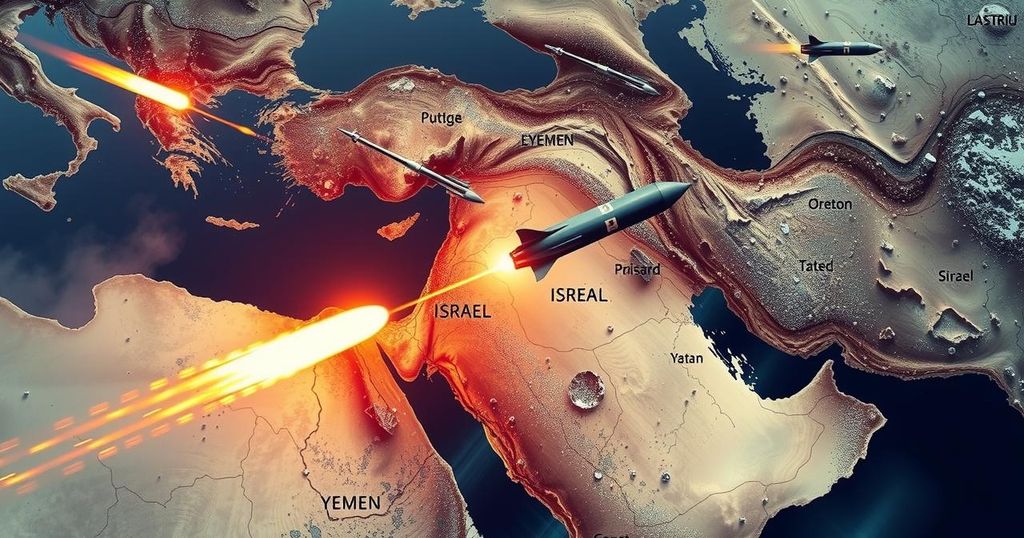Israel Faces New Challenges Amid Hostage Tragedy and Regional Violence
Hannah Katzir, a former Israeli hostage from the October Hamas attack, has died at 78. Meanwhile, Israel’s military intercepted a projectile from Yemen, raising concerns after a recent uptick in missile attacks. Additionally, American journalist Austin Tice, missing in Syria since 2012, is believed to still be alive, according to an aid group.
A tragic development has emerged from Israel, where Hannah Katzir, a 78-year-old woman who was held hostage during the Hamas assault on October 7, 2023, has died. Katzir was among the approximately 250 hostages taken by Hamas during the attack that resulted in the loss of around 1,200 lives. The ongoing Israeli military retaliation has reportedly led to over 45,000 Palestinian casualties in Gaza, predominantly among women and children, according to the Gaza Health Ministry’s figures.
In a separate incident, Israel’s military confirmed the interception of a projectile fired from Yemen, which triggered air raid sirens across central Israel. Residents were startled into action as they sought cover. Reports indicate that a 60-year-old woman suffered severe injuries while attempting to reach a protected area. This marks the third incidence of missile activity from Yemen within a week, with previous attacks having caused injuries and damage. In retaliation for recent threats, Israeli military actions targeting Houthi positions have also increased, underscoring the escalating regional tensions.
Additionally, there is renewed attention on the case of Austin Tice, an American journalist missing in Syria since 2012. According to Nizar Zakka, the head of Hostage Aid Worldwide, Tice is believed to be alive, though U.S. authorities have expressed caution about the lack of direct evidence. Zakka reported that Tice was alive as recently as January and was likely being held as a bargaining chip by the Syrian government.
This confluence of events sheds light on the continuing human toll of the Israel-Palestine conflict and the broader Middle Eastern geopolitical landscape, emphasizing the humanitarian crisis and the complexities surrounding hostage situations.
The current geopolitical climate in the Middle East, particularly concerning the Israel-Palestine conflict, remains fraught with tension and violence. Since the Hamas attack on October 7, 2023, which resulted in substantial loss of life, retaliatory measures by Israel have escalated dramatically, resulting in heavy casualties in Gaza, with troubling reports regarding women and children among the deceased. The ongoing conflicts involving regional actors, such as the Iranian-backed Houthi rebels in Yemen, and their recent cross-border missile activity towards Israel, further complicate the situation, spotlighting the vulnerabilities and dangers faced by civilians. Meanwhile, the predicament of American journalist Austin Tice serves as a reminder of the enduring issues related to hostages and their fate in destabilized regions.
In summary, the death of Hannah Katzir tragically highlights the personal toll of recent hostilities in Israel, while the interception of a projectile from Yemen underscores the ongoing threats faced by the nation. Furthermore, the case of Austin Tice amplifies the urgency surrounding international efforts to rescue those held captive in conflict zones. Overall, these events illustrate the interconnectedness of regional conflicts and the profound impact on individuals and families caught in the crossfire.
Original Source: apnews.com




Post Comment